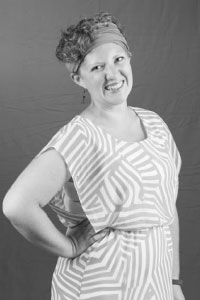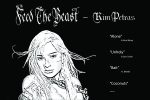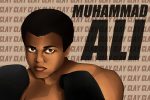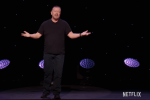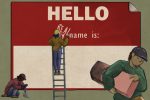A Moment with Meredith Russo
The transgender author behind ‘If I Was Your Girl’ talks words, boxes and intersectionality.
By Alicia Drier, Roosevelt University
I first heard about Meredith Russo’s debut novel, “If I Was Your Girl,” in an October 2016 video update from YouTube beauty blogger Zoella, but, at the time, I had no idea how much the book would change my life.
The 2017 Stonewall Book Award winner tells the story of high school senior Amanda Hardy as she struggles with identity and acceptance at her new school. There’s an important detail to Amanda’s story, however, that elevates Russo’s narrative into a timely piece of literature beyond the typical young adult story—Amanda Hardy is transgendered.
Meredith Russo spoke with me recently about her inspiration and experience since publishing “If I Was Your Girl” in 2016.
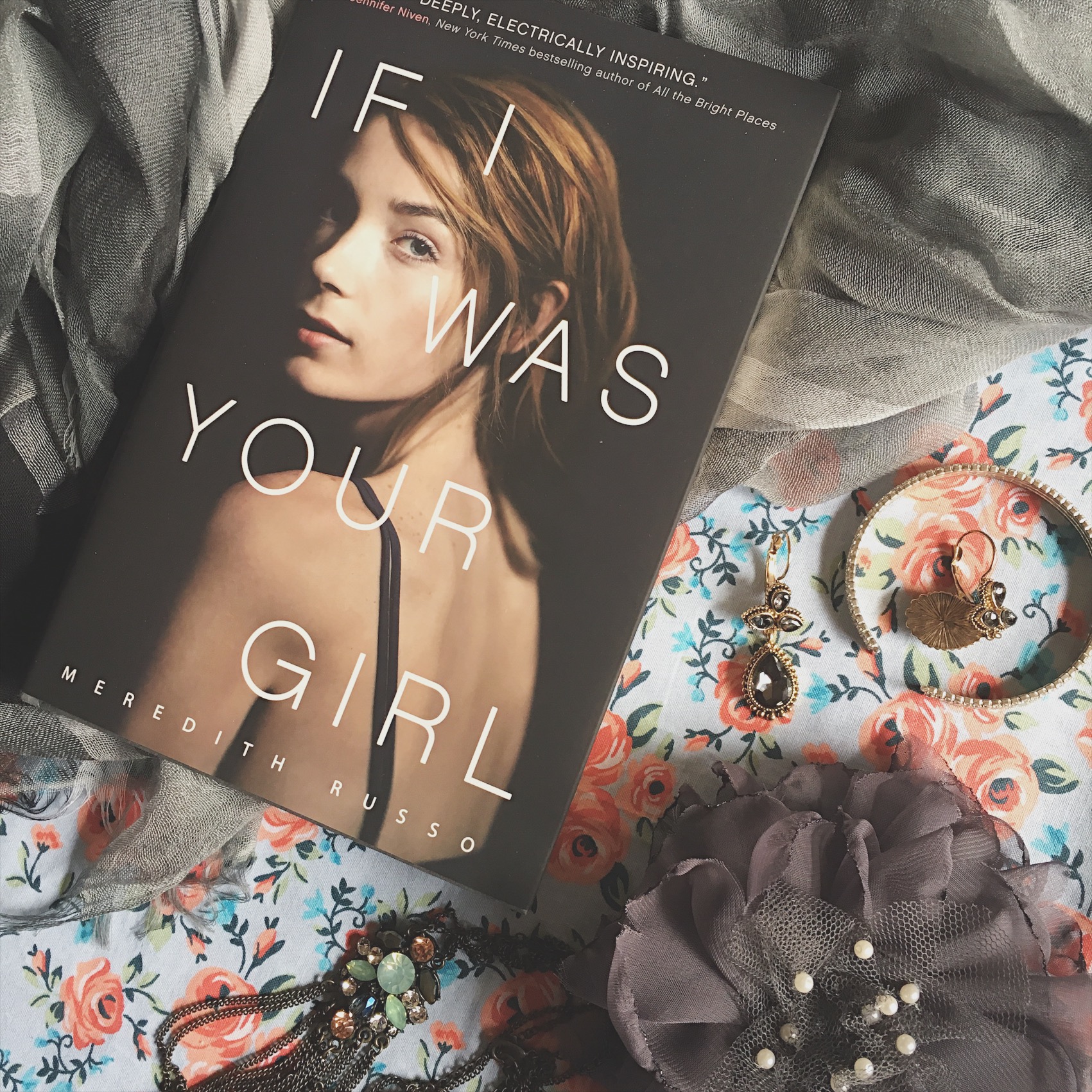
Alicia Drier: You have said in many interviews about this book that your goal was to write a happy ending for a transgender character. With that in mind, did you feel the writing of this story was more done in the name of activism or entertainment? Did you hope that your book would inspire social change in the transgender rights movement, or did you write it more as a story that you enjoyed and could connect to your life experience?
Meredith Russo: I don’t think there is necessarily a distinction between the two. Artists have as much responsibility to our communities as engineers and doctors, I think, at least in our way, and we ignore that at our own peril and the peril of those who consume our media. All the same, I do think of myself as an entertainer/storyteller first and an activist second.
There are real, solid activists out in the world laying the groundwork, and I’m happy if my book helps them along, but to my infinite disappointment I’ve never been the sort of person to rush the street. I will say that there was definitely an element of personal therapy to it, at least as much as the activist parts.
AD: One of the most intriguing scenes in “If I Was Your Girl” occurs when Amanda attends church with one of her friends. Is a Christian faith part of your personal dialogue as well, and if so, how do you connect/find your place in the modern church?
MR: I was raised an atheist, actually. My relationship to religion is complex, as I think it must be as a minority living in a place as deeply religious as the American South. I spent most of my youth actively hostile to religion, specifically Christianity, because, as a young queer person, I understood them as the forces most responsible for my pain and oppression.
Growing older, though, and meeting good Christians of every stripe, taking my son to temple and watching what has happened to Muslim communities because people uncritically accepted a faith as evil, I’ve come to a more nuanced view of it. Religion is just a thing, a tool or a vehicle for art or a form of specialized therapy or a hinge around which communities easily organize themselves, and the extent to which it is good or bad, healthy or toxic, uplifting or oppressive, is more a reflection of the flock than the holy text.
People are unruly, chaotic and stubborn, and it seems to me more likely that they’ll do what they feel like and justify it with whatever ideology is on hand, than that they would allow themselves to be twisted into an uncomfortable shape. So, especially to the extent that I am an activist in a religious place, I’ve been doing my best to find and emphasize the beauty in religion, to hold up its utility as a force for healing in our communities rather than one of division.
AD: What is the best fan story you can share since your book has been published?
MR: I talked a girl down from suicide a few months ago. I can’t say much more, obviously, but the idea that a young trans person is alive and got help because of something I did is worth more than any royalty or award.
AD: The dialogue about transgender rights has slowly been changing over the past two years since you got your book deal for “If I Was Your Girl,” but still too often the transgender rights debate is watered down to a discussion of bathroom doors. What else do you wish this conversation could include, and how do you think we should go about shifting and expanding this debate?
MR: I think, as Laverne Cox has pointed out, we must understand that the bathroom bills are just one tentacle of a larger monster whose eventual aim is the complete removal of transgender people from all public life. It isn’t a coincidence that the specific restrictions placed on us, or what’s planned anyway, just happen to make it incredibly difficult to obtain medical care (it’s a joke in the trans community that doctors will blame broken arms on our hormones, and I and many trans people I know have been turned away by transphobic doctors), to access courthouses and libraries, to pursue an education, and to travel anywhere we can’t easily reach by car. This is all intentional, and it is repulsive.
We also need a better understanding of intersectional politics, of how you can’t help trans people if you aren’t also eradicating racism (trans women of color are at a particular nexus of violence), capitalism/poverty (housing, employment and equal access to social services are less sexy than bathrooms and dating but our biggest issues right now), and misogyny. The last one seems obvious, but for some reason people are incredibly slow to grasp that in many ways transphobia is just a specific kind of misogyny, or how all of these struggles are facets of patriarchal, colonial, capitalist kyriarchy.
The best way to expand the debate, and I hope this doesn’t seem sarcastic, is to do a better job of listening to trans people. Bathrooms and sex are easy for cis people to think about, or at least thrilling enough to warrant cis attention, but if you want to understand our more abstract challenges, you have to listen to us. Find more trans authors than just me. Find trans bloggers. Find trans activists. And listen to us before you listen to what even the best-intentioned cis activist has to say about our struggle.
AD: Besides your book, what do you feel are some of the best positive representations of transgender individuals in the media right now?
MR: Everything released by Topside and Metonymy is gold, though some of it is a little adult for a younger audience. “Orange is the New Black” is a sensation for a reason, though after the first season I thought the show’s handling of Sophia was pretty clumsy.

YouTube is full of young queer, trans people making their voices heard, too many to name at a stretch but they’re there. I think “Beast” by Brie Spangler is a lovely book, and I have it on good authority that Emery Lord is working on a book with a trans character, though that’s all I’ll say.
AD: In a May 2016 article, you said that you were working on two new books, one YA and one adult, both about trans characters. Do you feel that this is a natural niche for the rest of your writing, or do you struggle with this being a box that you’ve been forced into for the sake of marketability?
MR: I’ve never had much respect for boxes, so even if the industry does try and hem me in, I doubt I’ll even notice. It is my intention to get progressively weirder with the things I write, until eventually you can’t even tell what genre I’m going for, and everything is so bizarre that the characters being trans barely even registers.
You can join the conversation about “If I Was Your Girl” through the Zoella Book Club. Or you keep in touch with Meredith Russo through her Twitter page.




